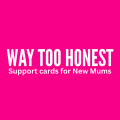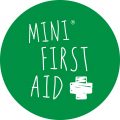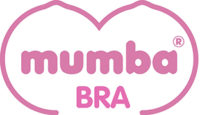The Baby & Toddler Show
You can now join us in London, Glasgow, Manchester and Birmingham for incredible shopping opportunities, unbeatable deals and invaluable advice and support.
Save money with our incredible show deals on over 150 brands, take home complimentary goodies, get hands-on demonstrations, meet the brand experts and ask them your important questions in person and so much more.
Over 150 Brands
Find all the top brands as well as 100s of unique and useful products you won’t find on the high street
Best Prices Guaranteed
Save money with our best price guarantee on pushchairs, car seats & furniture from all the top brands
Expert Advice
Hear from expert speakers on subjects including birth, sleeping, nutrition, babywearing and more
First Aid Sessions
All new and expectant parents can pick up invaluable lifesaving skills with free first aid advice and tips
Guaranteed Best Prices























Get the Latest News & Advice
Keeping Your Baby’s Airway Clear While They Sleep
When it comes to safer sleep, there’s one thing that matters above all else: keeping your baby’s airway clear. Their tiny breathing passages are delicate, and in certain positions, they can become blocked or narrowed—making it harder for them to breathe.
But don’t worry, safer sleep doesn’t have to be complicated. With a few simple habits, you can create a sleep space that helps protect your little one while giving you peace of mind.
We asked Lisa Joyce, from Folk & Thread and one of the UK’s leading baby sleep product experts, to share some practical advice on keeping babies’ airways clear during sleep.
Group B Strep Explained
Have you heard of group B Strep? It’s a bacterial infection which can affect pregnant women and babies. Around 1 in every 1750 newborn babies in the UK and Ireland is diagnosed with early-onset group B Strep infection, but the lack of awareness around this topic means you’d be forgiven for never having heard of it until now. The infections that group B Strep most commonly causes in newborn babies are sepsis, pneumonia, and meningitis, and although group B Strep infection can make your baby very unwell, with prompt treatment, most babies will make a full recovery.
Self-Care After The Birth Of Your Baby
When your baby arrives, it’s natural for all your attention to shift to them, their feeds, their sleep, their every tiny need. But amidst the nappies and night feeds, there’s someone just as important who also needs care and that is you.
At My Expert Midwife, we believe that looking after yourself after birth isn’t a luxury — it’s essential. Your body has been through an incredible journey, and your emotional world is shifting just as rapidly. Here’s how to make space for self-care, even in the early, hazy days of new motherhood.
Safer Sleep In Autumn & Winter
Autumn can be a tricky time for new parents, as we transition from summer and the temperature drops, it can be tempting to wrap your baby up in thick bedding while they sleep, but this can cause them to become too hot.
We asked Lisa Joyce, from Folk & Thread and one of the UK’s leading baby sleep product experts, to share some practical tips to help keep your baby at a comfortable temperature this autumn and winter.
What To Expect During Pregnancy: Body Changes
Pregnancy is an incredible journey that brings about many changes not just emotionally, but physically too. As your baby grows, your body naturally adapts to support them, often in ways that can feel surprising, uncomfortable, or even unfamiliar even if this is not your first pregnancy. Knowing what to expect can help you feel more confident and in control. So the Midwives at My Expert Midwife have pulled together this short blog on some of the more common changes to your body during pregnancy.
The First 3 Days After Birth: Your Transition To Motherhood
The first 72 hours after giving birth can feel like a blur — a whirlwind of love, learning, hormones, and very little sleep. Whether this is your first baby or your fifth, those early days are a huge physical and emotional shift. At My Expert Midwife we believe in preparing you for what’s real, not just what’s picture-perfect so here’s what you might expect in those precious first few days.
The Two Conditions Every New Mum Should Know About
Pregnancy and early motherhood are incredible, emotional, and at times overwhelming experiences. Your body is doing amazing things – growing a whole new human, no less – but let’s be honest, it’s not without its challenges. Two of the most common (and sometimes confusing) conditions that can sneak up on you during this time are anaemia and mastitis.
We chat to Cathy Tabner, expert midwife at My Expert Midwife, about these two often misunderstood conditions.
Caring For Your Newborn
Caring for your newborn baby should be the most wonderful experience, but equally it can be filled with the overwhelming fear of responsibility for this tiny new bundle. In the UK, we are fortunate to have support from our incredible NHS midwives who are there to offer support and guidance to new parents in the early days and weeks following birth both within the hospital setting and out in the community. Once the Midwifery team discharge you from their care, they will ensure that the Health Visitors have been in contact with you, and it will then be they who continue to provide any support necessary until your baby is school age!
Top Tips To Protect Your Baby’s Health
Protecting your baby’s health starts long before birth. A mother’s health during pregnancy plays a crucial role in shaping her child’s future well-being. Research shows that key nutrients, environmental factors, and lifestyle choices can influence not only birth outcomes but also long-term risks of conditions such as pre-eclampsia, gestational diabetes, autism, anaemia, and cognitive function deficits. Here’s how you can support your baby’s health from pregnancy and beyond.
Mini First Aid’s Top Safety Tips For Babies And Children
Preparing for your baby’s arrival is such a joyful time. From picking out the perfect pram to folding those tiny first outfits, it’s natural to focus on all the lovely, softer moments. There’s so much excitement and anticipation as you plan for the birth and think about how you’d like to feed and care for your little one.
At Mini First Aid, we know that becoming a parent is a huge adventure – and while there’s no magic formula for getting your baby to sleep through the night, we’re here to help you feel confident and prepared. Our practical safety tips and first aid advice are designed to give you peace of mind, so you can focus on enjoying those precious early moments with your child.

